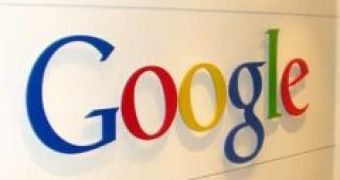Microsoft considers natural a move from antitrust regulators to look into online advertising practices, and at Google. Earlier this week, the European Commission notified Google three companies had filed complaints against it for unfair practices, including UK’s Foundem, ejustice.fr a French search engine, and Microsoft's Ciao! from Bing. In a post on the Google Public Policy blog, Julia Holtz, Google senior competition counsel, suggested that the company that was the catalyst for the complaints was Microsoft, at least in two out of the three cases.
“Foundem - a member of an organisation called ICOMP which is funded partly by Microsoft - argues that our algorithms demote their site in our results because they are a vertical search engine and so a direct competitor to Google. ejustice.fr's complaint seems to echo these concerns,” Holtz stated.
“Regarding Ciao!, they were a long-time AdSense partner of Google's, with whom we always had a good relationship. However, after Microsoft acquired Ciao! in 2008 (renaming it Ciao! from Bing) we started receiving complaints about our standard terms and conditions. They initially took their case to the German competition authority, but it now has been transferred to Brussels,” Holtz added.
Google has so far dismissed all the accusations brought against it and claims that it is committed to competing fairly. Whether Google’s practices violate antitrust law in Europe or not is for the European Union antitrust regulators to decide. Giving the fact that the European Commission already informed the Mountain View company that it was scrutinized, it sounds like an answer will follow, after the investigation is over.
Microsoft didn’t react to the accusations made by Google. In this context I contacted the Redmond company with a number of questions. I wanted to know whether Microsoft was indeed behind the Foundem and Ciao! from Bing complaints. And I also asked for a position on Google’s statement that it is competing in a fair manner to its competitors. Below is the answer from Microsoft.
“Although we haven’t been notified yet by the Commission, we do believe it’s natural for competition officials to look at online advertising given how important it is to the development of the Internet and the dominance of one player. In the meantime, we continue to cooperate with the German government’s investigation into complaints brought by Ciao, the German Newspaper Publishers Association, the Association of German Magazine Publishers, and Euro-Cities, a Berlin-based online mapping company,“ revealed Jack Evans, a Microsoft spokesman.
Google has grown to a size in which it is practically synonymous with Internet search and online advertising through its search engine. And there’s little growing in the search giant’s shadow. Even companies with strong Internet presences, such as Microsoft and Yahoo have problems competing with Google in search and online advertising, and in providing a viable alternative to what the Mountain View giant has to offer. Fact is that as long as Google controls the vast majority of traffic going to websites, it also is the main source of clicks and ultimately money for ad-based Internet businesses.
Holtz claims that Google is not choking its competitors, and is not working to hurt users or partners. However, there’s no disputing Google’s dominance, and of course, the European Commission needs to ask not Google, but the company’s competitors whether they feel choked or not.

 14 DAY TRIAL //
14 DAY TRIAL //